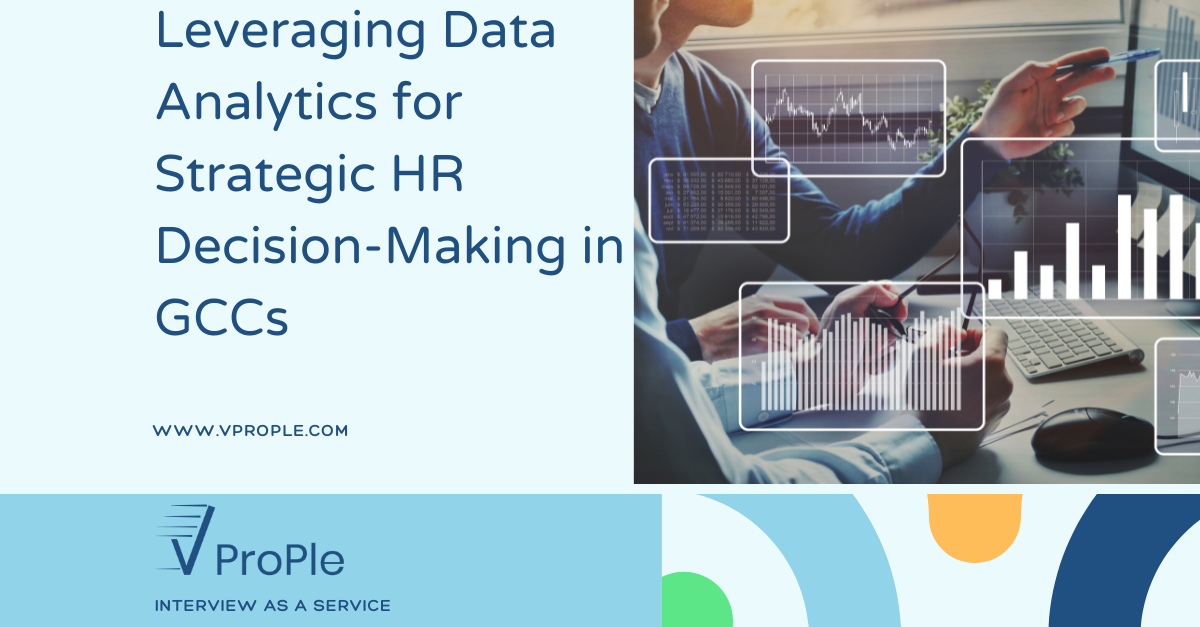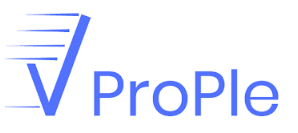This website use cookies to help you have a superior and more relevant browsing experience on the website.
Leveraging Data Analytics for Strategic HR Decision-Making in GCCs
-
08/07/2024

Traditionally, Global Capability Centers, or GCCs were responsible for handling back-office operations. But today, these hubs have evolved significantly. Now they handle core business functions and strategic initiatives for their parent organizations in the modern corporate landscape.
Human resources is a critical area where GCCs can use their potential in decision making in HR. For this, they can use the power of data analytics to enhance various HR processes. Continue reading the blog to learn how!
What is the importance of strategic HR decision making in GCCs?
Since GCCs operate in dynamic environments, they must find, hire and retain top talent. Simply put, GCCs cannot compromise with the quality of hire. Strategic hiring decision-making involves finding the right individuals with relevant skills for the right roles. Not only does this boost productivity, but it ensures that the workforce aligns with the long-term goals of the parent organization.
However, if we talk about traditional hiring processes, they mostly rely on resumes and interviews. That is why they often fail to evaluate the full potential of a candidate. This is where GCCs need data analytics for a more comprehensive and accurate approach to talent acquisition.
What is the importance of data analytics in HR decision-making in GCCs?
Data analytics in HRM is the process of collecting, analyzing and interpreting recruitment data. HR teams across various companies use data from different sources like applicant tracking systems (ATS), job portals and social media to gain insights into the talent market and make data-driven hiring decisions.
Earlier, talent acquisition heavily relied on manual processes. Hiring professionals would review resumes manually and conduct in-person interviews to make hiring decisions based on subjective judgment and their instincts. But today, the times have changed. Now hiring professionals in GCCs can use data analytics and the interview as a service platform to streamline their hiring process in many ways.
That is because data analytics in HRM encompasses many methods and tools to evaluate employee data and make evidence-based hiring decisions. In other words, by using data insights, GCCs can not only optimize their talent acquisition strategies but also gain a competitive edge in the war for talent. Here are some key ways in which data analytics can enhance hiring for GCCs:
Candidate sourcing
Big data are vast datasets that cannot be processed or analyzed using traditional approaches or methods. However, HR data analytics has the ability to use big data for candidate sourcing. It means hiring professionals in GCCs can analyze this wealth of data to identify potential candidates for specific roles. Here is how:
Predictive analytics
Predictive analytics analyzes the traits, performance metrics and experiences of current employees to create a profile of the ideal candidates. After this, it targets the recruitment efforts accordingly and can help GCCs identify potential candidates who most likely have all the relevant skills and expertise for the given role.
Social media and online platforms
GCCs can use HR data analytics to analyze the data from valuable data sources like social media, online job portals and professional networking sites. By analyzing data from these platforms, recruiters in GCCs can identify and engage with potential candidates. Doing so will expand the talent pool and will increase the chances of finding passive candidates who might not be actively looking for a job but have the desired skills and experience.
Improving candidate assessment
Unconscious bias can unintentionally influence candidate assessment, evaluation and HR decision making. It may also reduce diversity in the workforce. However, data-driven approaches focus on objective metrics and performance indicators and not on subjective judgments.
This way, they help reduce unconscious bias in the hiring process in GCCs. Besides this, technical interview outsourcing can also help GCCs reduce the risk of unconscious bias during the interviewing process.
Behavioral analysis
GCCs can learn more about candidates and analyze if they will be an ideal fit for the job by analyzing behavioral data like responses of the candidates in personality tests and behavior in assessment centers.
Skill assessment
Besides analyzing behavior, analytics tools can evaluate the candidate’s skills and competencies through online assessments and simulations. By doing so, these tools provide objective data on the ability of the candidates and reduce the biases inherent in traditional interviews.
Enhancing recruitment efficiency
Data analytics in HRM also plays a crucial role in enhancing the hiring process. Here is how:
Process optimization
Data analytics can identify bottlenecks and inefficiencies in the hiring process, thus streamlining the recruitment process. For example, HR teams can analyze various recruitment metrics such as time-to-fill and cost-per-hire to gain insights into the efficiency and effectiveness of their recruiting efforts. By doing so, they can implement improvements and strategies to optimize their recruitment process.
Reduced employee turnover costs
Sometimes, employee turnover can be costly for GCCs regarding hiring expenses, lost productivity and the knowledge drain from employee departures. In this case, human resources data analytics can help GCCs identify the factors that lead to increased turnover.
Not only this, but it also allows hiring teams to take proactive measures to address them. It is how GCCs can pinpoint the reasons behind employee departures, develop targeted retention strategies and ultimately reduce employee turnover costs.
Also Read: How Generative AI Transforms Talent Acquisition
What are the best practices for GCCs to implement data analytics in hiring?
Data analytics, powered by advanced technologies, has transformed the way GCCs identify, attract and retain top talent. Here is how talent acquisition teams in GCCs can use data-driven insights for strategic decision making in HR that lead to successful hires and overall growth of the parent organization:
Data quality and integration
GCCs should ensure that the data collected is accurate, consistent and comprehensive. Moreover, they should integrate data from various sources such as HR systems, performance management tools and external databases to create a holistic view.
Invest in technology
Investing in and using advanced analytics tools and platforms that offer predictive analytics, ML and data visualization capabilities can help GCCs derive meaningful insights.
Related: Why Companies are Investing in Interview Services to Improve Candidate Experience
Integrate data analytics in talent acquisition strategies
Human resources data analytics should be a critical part of talent acquisition strategies. It means hiring teams should use data insights throughout recruitment. But they can only do so if they have data literacy skills. Therefore, GCCs should train and upskill HR teams in data analytics techniques and should promote data-driven decision-making in the talent acquisition process.
Also Read: How to Master Data-Driven Recruiting
Conclusion
Ultimately, it is safe to say that using human resource analytics for strategic hiring decision-making offers GCCs a competitive edge in the dynamic and evolving talent acquisition landscape. That is because data analytics has become a game-changer in talent acquisition.
It has transformed how GCCs identify, attract and retain the best candidates. By using the power of big data, predictive analytics and AI-driven tools, hiring teams in GCCs can make data-driven hiring decisions which will result in successful hires and overall growth of the company.
Frequently Asked Questions (FAQs)
Q1- Can data analytics transform HR decision making for GCCs?
Ans. Yes! By providing insights into talent acquisition, retention and performance management, data analytics can revolutionize HR decision making in GCCs. It means GCCs can use the power of data analytics to make informed decisions that align with the long term goals of the parent organization.
Q2- What are the benefits of leveraging data analytics in talent acquisition for GCCs?
Ans. Data analytics enables GCCs to:
- Streamline the hiring process
- Eliminate the scope of any unconscious bias
- Enhance candidate assessment
- Identify potential candidates more effectively
- Optimize recruitment strategies
Q3- How can GCCs successfully implement data analytics in their HR strategies?
Ans. GCCs can ensure the successful implementation of data analytics in their HR strategies by:
- Focusing on data quality and integration
- Investing in advanced analytics tools
- Providing training to HR and talent acquisition teams about data analytics techniques


